
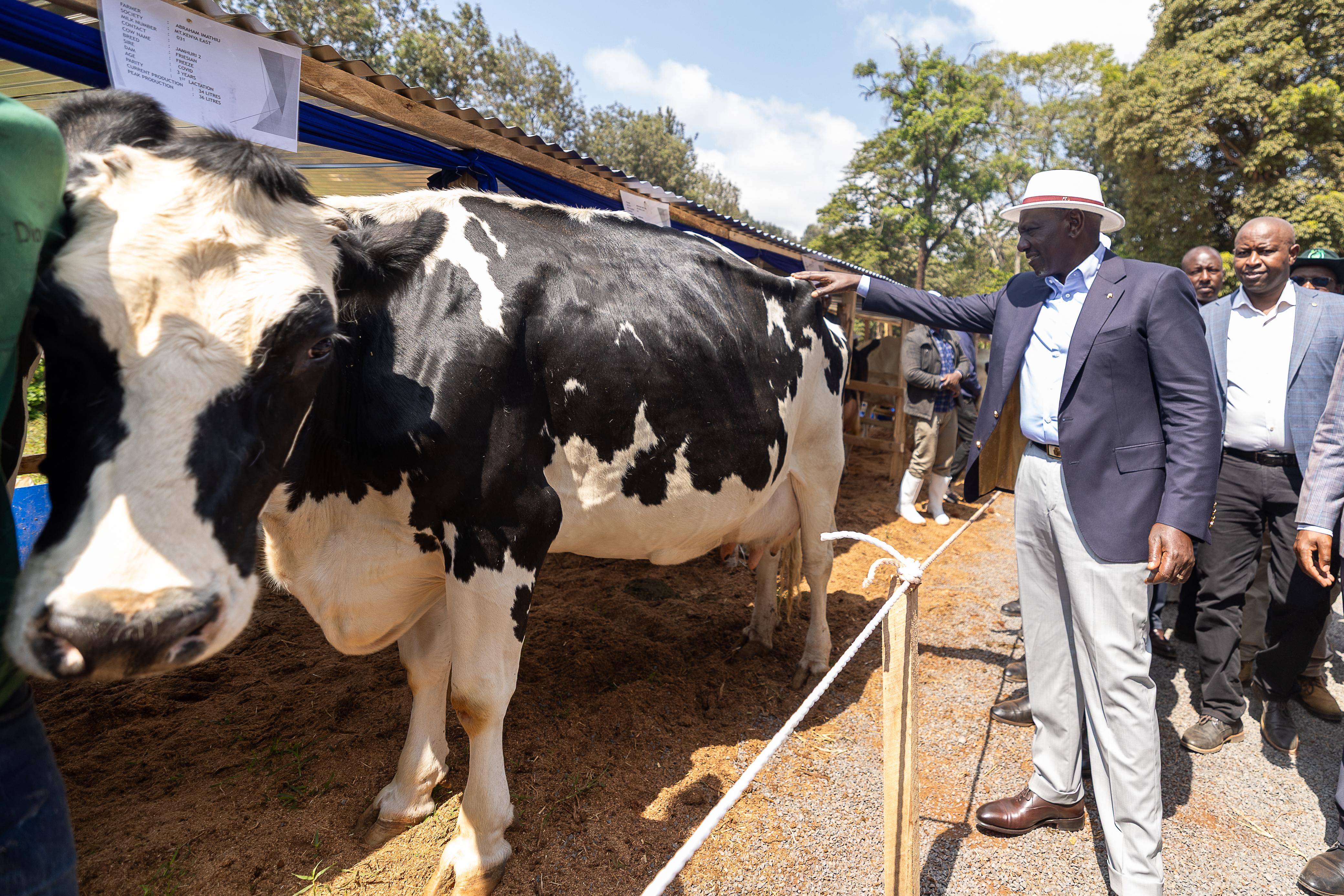 President William Ruto at the 10th Annual Dairy Farmers Field Day 2025 at ASK grounds in Meru County on June 21, 2025/PCS.
President William Ruto at the 10th Annual Dairy Farmers Field Day 2025 at ASK grounds in Meru County on June 21, 2025/PCS.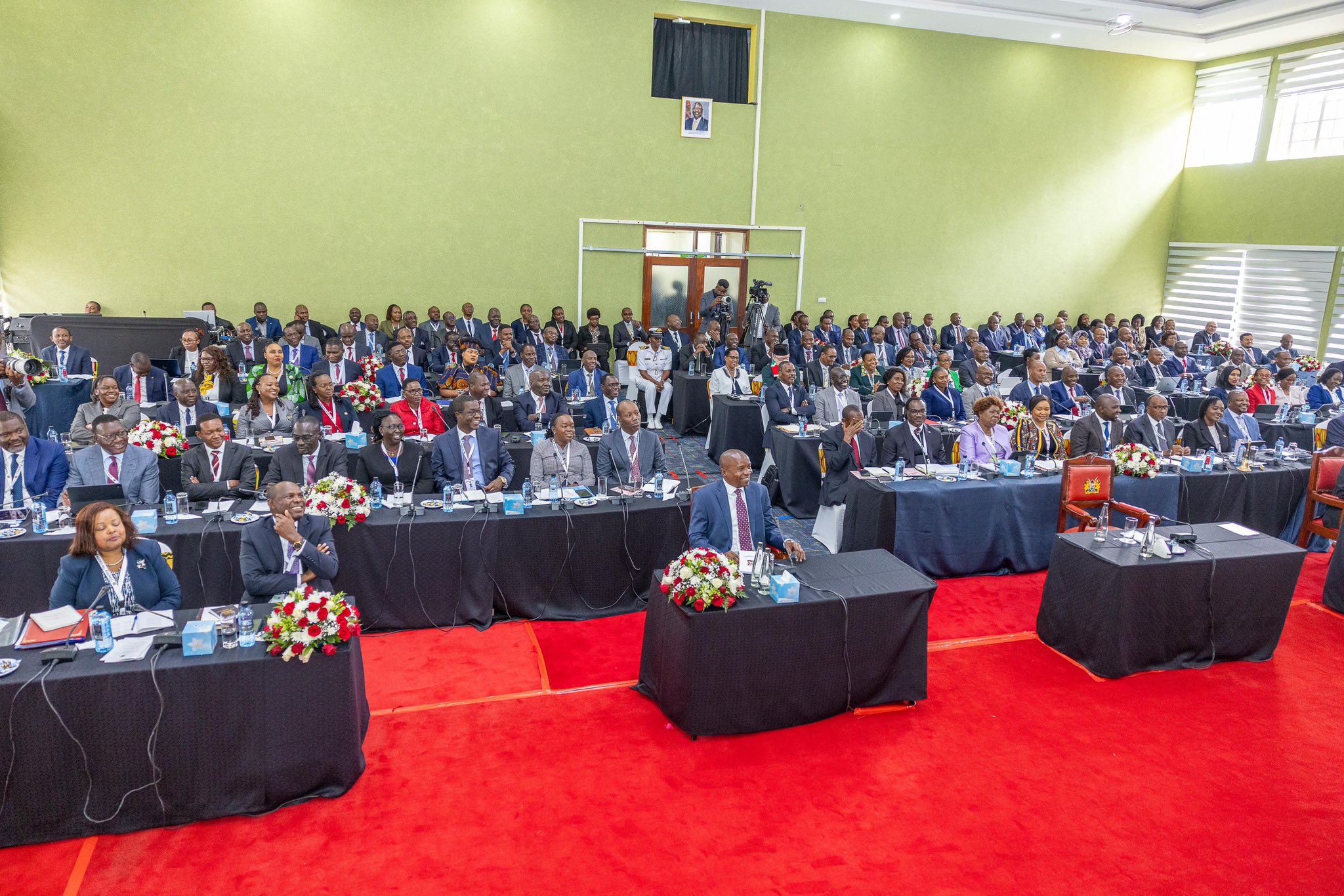 Deputy President Kithure Kindiki with other members of the executive during the retreat on June 19,2025/PCS
Deputy President Kithure Kindiki with other members of the executive during the retreat on June 19,2025/PCSPresident William Ruto began his week at State House, Nairobi, where he assented to two critical bills, the Anti-Money Laundering and Combating of Terrorism Financing Laws (Amendment) Bill, 2025, and the Insurance Professionals Bill.
The new laws aim to enhance Kenya’s financial integrity and tighten regulation against illicit financial flows, especially in property transactions and through shell companies.
Accompanied by top government officials including National Assembly Speaker Moses Wetang’ula and Majority Leader Kimani Ichung’wah, the president said the legislation reflects Kenya’s commitment to regional leadership in financial governance and professionalism in the insurance sector.
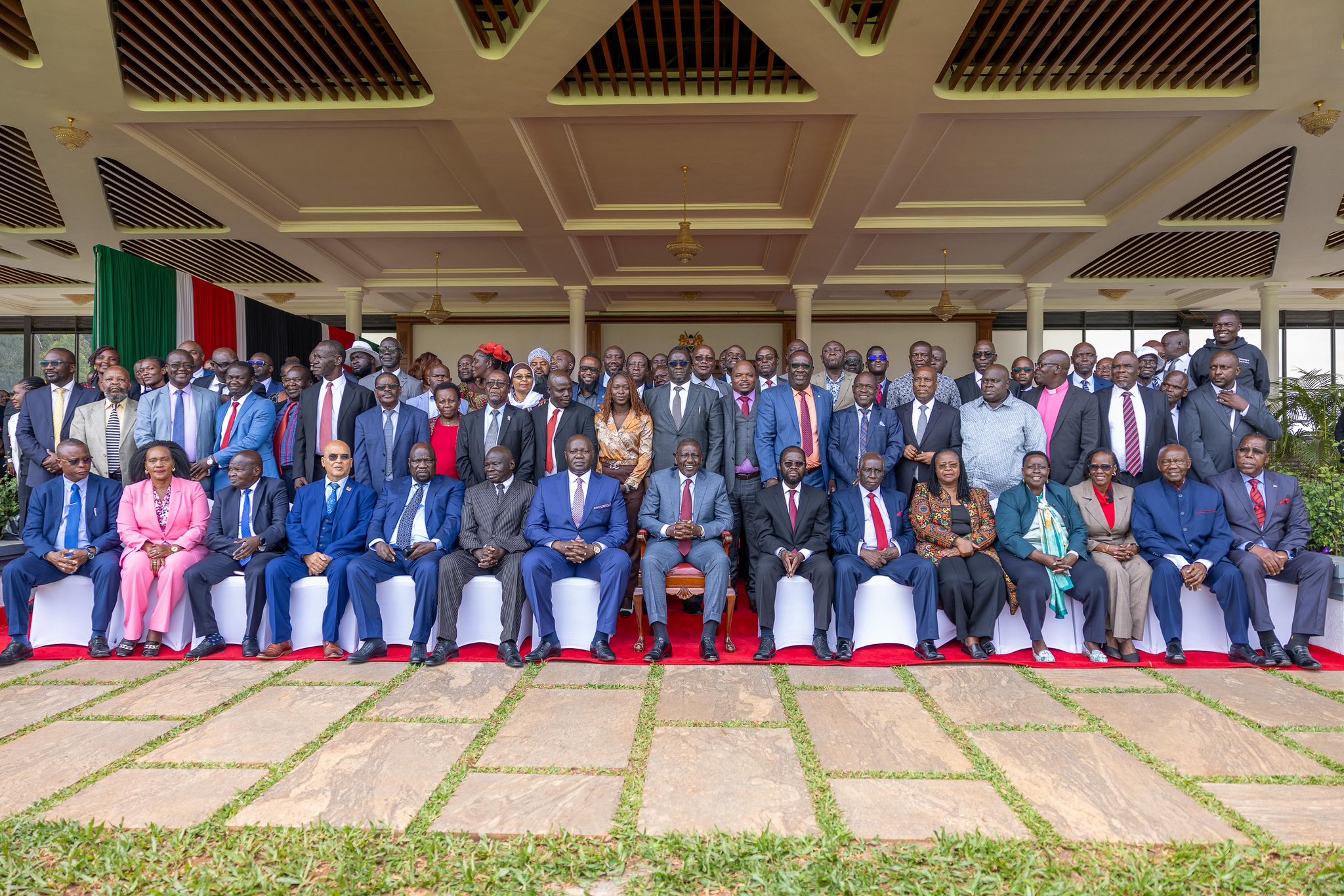
Later that day, Ruto flew to Naivasha for the Second Kenya Urban Forum, where he underscored the urgency of planned urbanisation.
With the country’s urban population expected to reach 50% by 2050, he highlighted the Affordable Housing Programme (AHP), which targets over 700,000 new homes, as a key intervention against slum proliferation.
Wednesday (June 18)
At State House, he met a delegation from Kisumu County led by Governor Anyang’ Nyong’o.
He reiterated his government’s commitment to inclusive development, highlighting progress in the blue economy, including the Kabonyo Fisheries Centre that’s set to produce up to 30 million fingerlings annually.
He later hosted outgoing US Chargé d’Affaires Marc Dillard to bid him farewell.
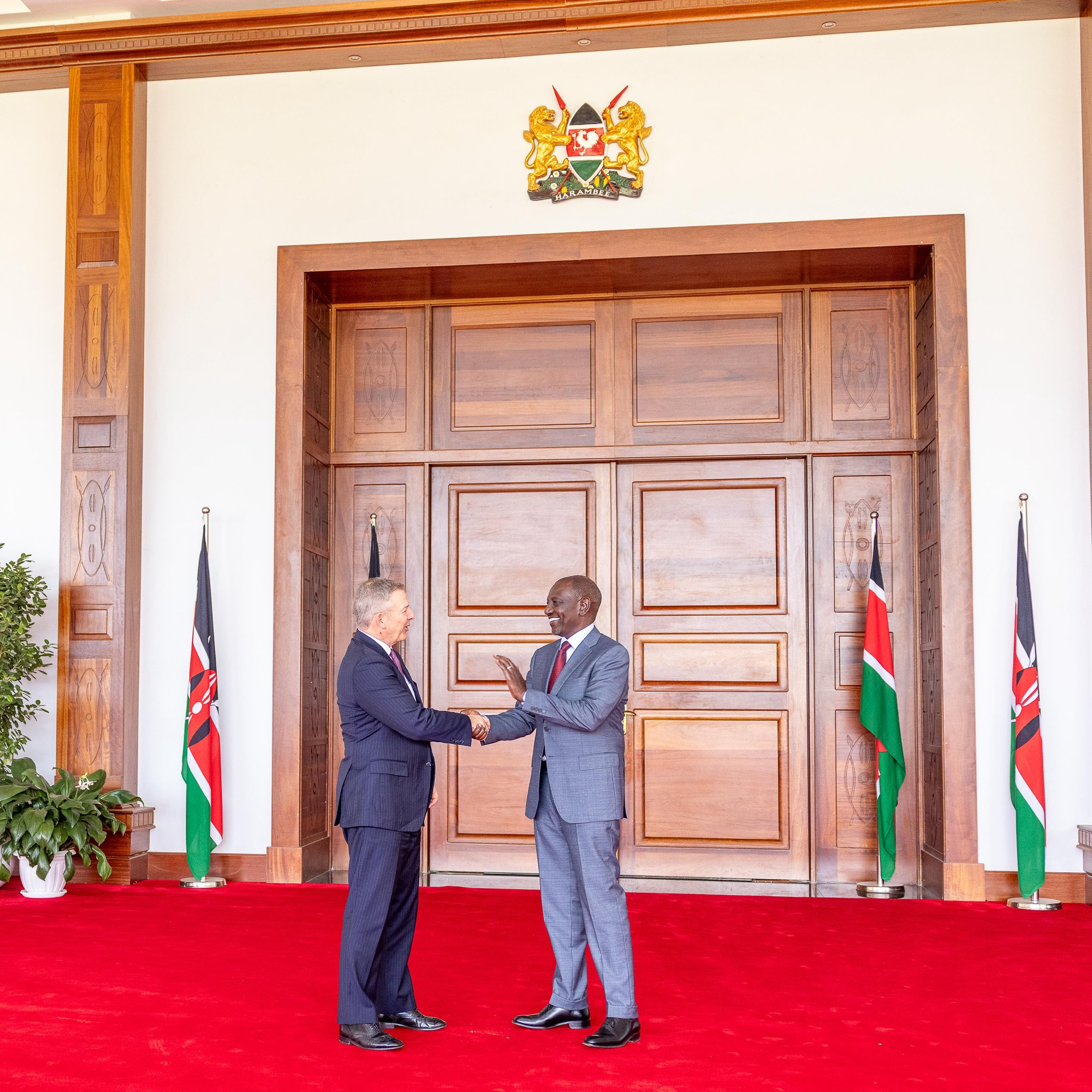 Outgoing US Chargé d’Affaires Marc Dillard shakes hands with president William Ruto at State House on June 18, 2025/PCS
Outgoing US Chargé d’Affaires Marc Dillard shakes hands with president William Ruto at State House on June 18, 2025/PCS Ruto said their discussions "reaffirmed our shared commitment to advancing Kenya’s Bottom-Up Economic Transformation Agenda." This includes the creative economy, enhancing peace and security cooperation, and supporting the Multinational Security Support Mission in Haiti.
Thursday, June 19
He officially opened the Third National Executive Retreat at the KCB Leadership Centre in Karen, Nairobi.
The two-day session focused on reviewing progress under the Bottom-Up Economic Transformation Agenda. He admitted the journey had been challenging but insisted the government’s tough decisions were now yielding economic stability.
Kenya, he said, has risen to become Africa’s sixth-largest economy, thanks to better fiscal discipline and export performance.
Friday (June 20)
The retreat continued with a special appearance by former Prime Minister Raila Odinga.
The President praised Raila’s candid input on national development, saying it resonated with the administration’s values of doing what is right over what is popular. Raila offered perspectives on infrastructure, markets, AI, and digitisation.
Saturday (June 21)
President Ruto concluded his week in Meru County, where he presided over the 10th Annual Dairy Farmers’ Field Day at the ASK Showground.
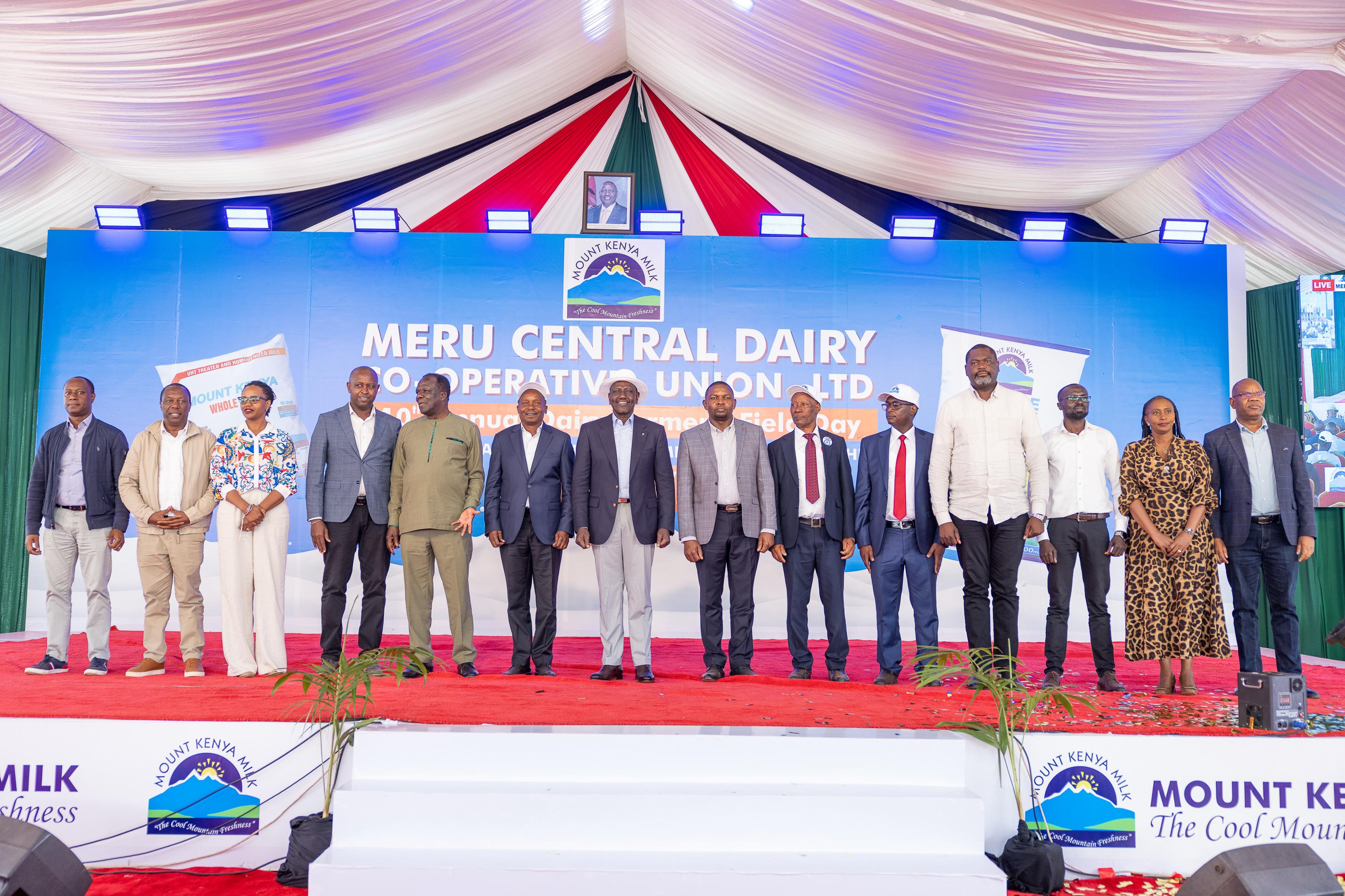 President William Ruto during the Meru dairy farmers' field day on June 21,2025/PCS
President William Ruto during the Meru dairy farmers' field day on June 21,2025/PCS Addressing thousands of farmers and agricultural stakeholders, the President lauded the impact of ongoing reforms in the agricultural sector, particularly in dairy farming.
He announced that farmers’ earnings per litre of milk have increased from Sh35 to over Sh50, pushing the total value of milk produced annually from Sh40 billion to Sh59 billion, a clear indicator of growth and improved farmer welfare.
To sustain this momentum, Ruto outlined a series of targeted interventions.
These include reducing the cost of sexed semen to Sh1,000 and rolling out a nationwide livestock vaccination campaign.
Others are exempting yellow maize from taxes to reduce animal feed costs and expanding access to milk coolers to minimise post-harvest losses.
He later addressed residents at Makutano.

















